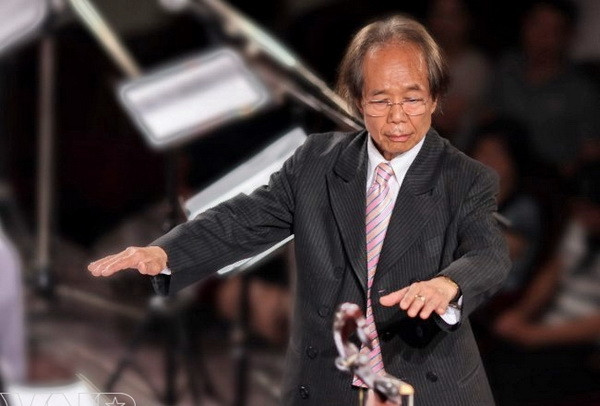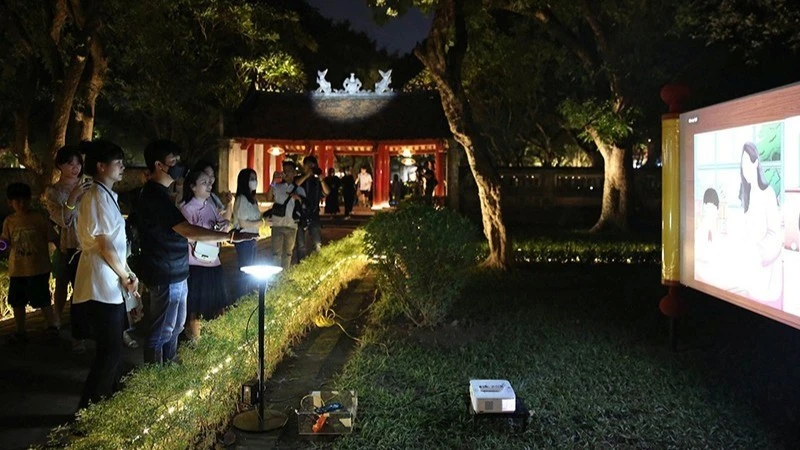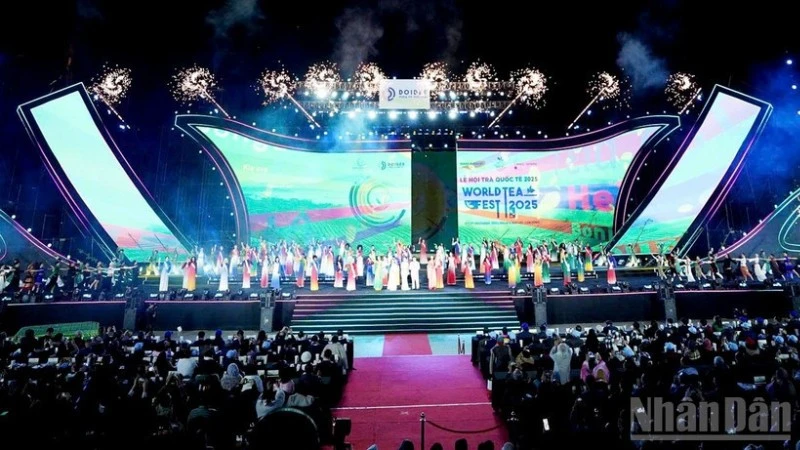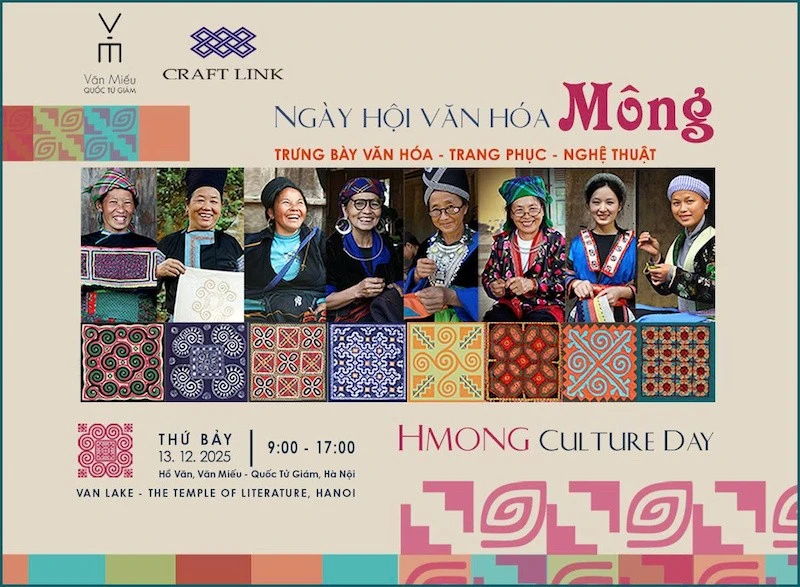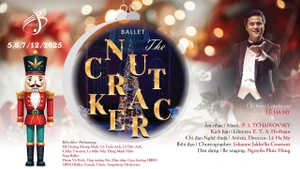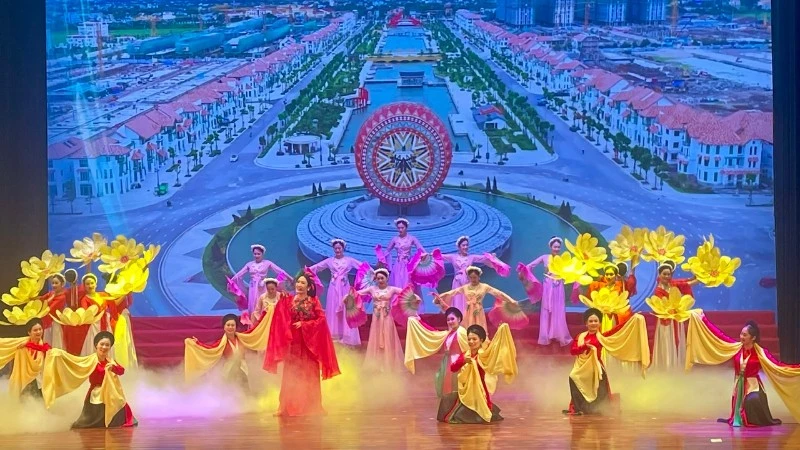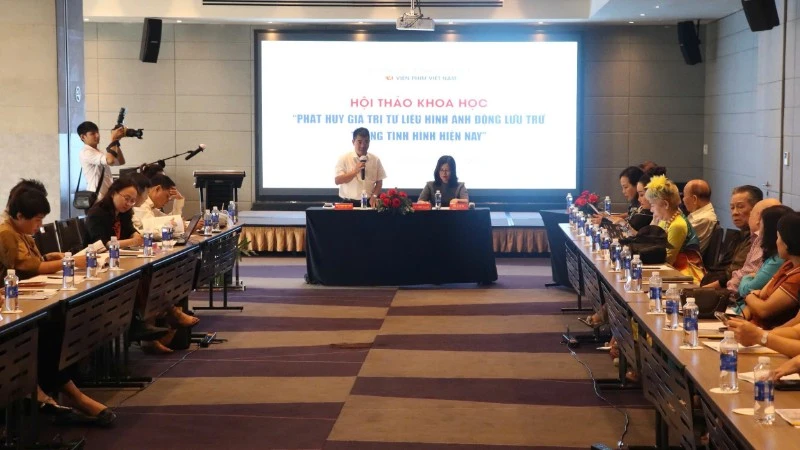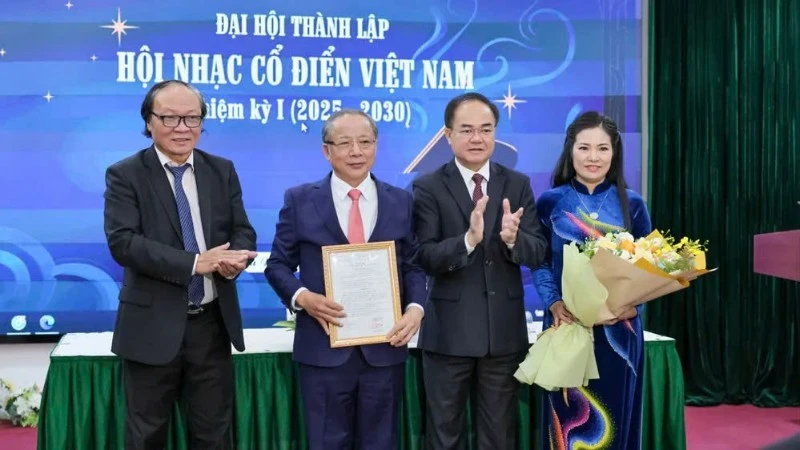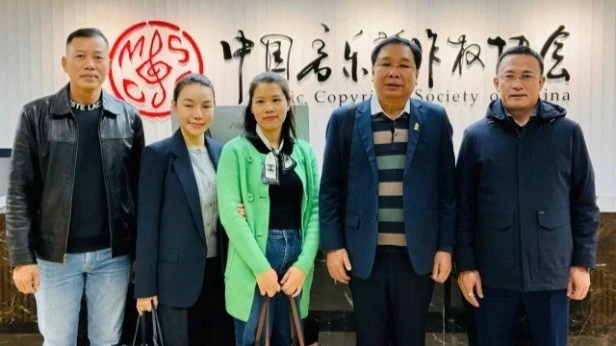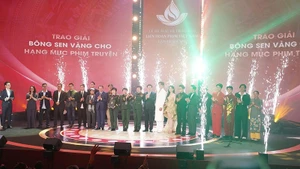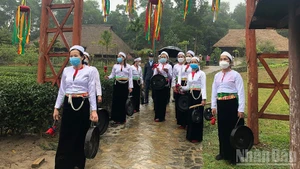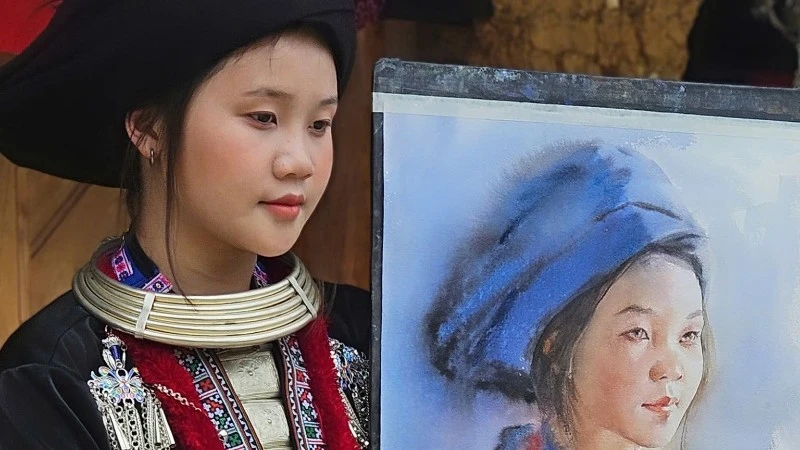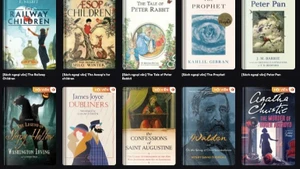The symphony, which was inspired by a Vietnamese fairytale called ‘Tu Thuc Gap Tien’ (Tu Thuc Meets a Fairy), is composed only for traditional Vietnamese musical instruments.
Despite Dao received a rigourous western education in France, he continues to produce work influenced by Vietnamese styles.
Composer Dao has granted Nhan Dan an interview to share his thoughts on the symphony.
Nhan Dan: ‘Tien Du’ is praised as a beautiful and harmonious confluence of Western and Eastern music. How has studying Western music influenced your composition of Vietnamese pieces?
Composer Nguyen Thien Dao: I am happy to hear that ‘Tien Du’ is embalmed with Vietnamese soul. The more I study Western symphonic principles, the more interested I become in discovering the wisdom and sophistication of Vietnamese traditional instruments and the dubbing and harmony among them.
‘Tien Du’ is inspired by ‘Tu Thuc Gap Tien’, which, according to me, is the most romantic love story in Vietnamese folklore. Although the story is adapted into music in a Western form of symphony, it is played by Vietnamese traditional instruments only, including dan bau (monochord), dan nhi (two-chord fiddle), zither, dan thap luc (16-string lyre), dan nguyet (two-chord guitar), flutes, drums and gongs.
‘Ca Tru’ (ceremonial singing) sung by Pham Thi Hue; ‘chau van’ (spiritual singing) and poem recital are also to be found in ‘Tien Du’.
I worked very hard to ensure that when Vietnamese percussion and string instruments join the orchestra, they will create melodious and harmonious sound to touch the listeners’ hearts and arouse the feelings of missing, loving, being together as well as the feelings associated with the separation.
It is not the first time you have composed a work with the intension of heading back to Vietnamese music, is it?
I was born in 1940 in Hanoi. I left my house at 19 Trang Tien street to study in France in 1953. I became a student of the National Conservatory of Music in Paris in 1963, where I received first class honour graduation for my work entitled ‘Thanh Dong To Quoc’ (The Fatherland’s Iron Bulwark).
I think the Vietnamese traditional music has always quietly waited somewhere in my mind. Professor Olivier Messiaen, one of the most influential people in my life, said to me “You are a Vietnamese person, keep that Vietnamese spirit.” He not only watered my thirst for musical creativity but also predicted my intention to ‘Vietnamize’ Western music in my own way.
Hanoi is an indispensable part of my life, and Vietnamese music is an indispensable part of my musical creativity.
Although I am honoured with two nationalities, that of Vietnamese and French, I’m very happy for my work to come under Vietnamese music. This makes me feel that I succeeded in retaining Vietnamese characteristics whilst receiving Western education.
It sounds like Hanoi will always stay in your heart?
Yes, it is. I was born in Hanoi but I left the city when I was just 13 years old. Hanoi always stays green in my mind like memories of an old friend. Since 1994, I have travelled between Paris and Hanoi to satisfy my nostalgia for the capital, to fuel myself with sonority and melodies of Vietnamese academic music, and to experience the modern beat of life in Hanoi.
For me, Hanoi is the kingdom of the academic music of the northern delta region’s culture, which embraces the intangible cultural essence of Ca Tru. Thus, if I do not come back to Hanoi, how can I discover the quintessence of Vietnamese culture and the Hanoians’ spirit and how can I transfer them into the non-figurative language of Western symphony?
70% of my work has roots in Vietnamese music and this tendency can be seen in ‘Dinh Menh Bat Chot’ (Accidental Fate) oratorio, an 80-minute contemporary musical composition of opera, ballet, and symphony. I came up with the idea of composing this work in 2007 and it was staged in 2011. It features the voice of a soprano, two baritones, and a tenor, accompanied by a symphony orchestra and a combination of opera, ballet, recitals of Vietnamese poems, play, video installation and even rock!
I want to entertain the audiences with an experience like no other, hence why I even worked in rock to the oratorio.
‘Dinh Menh Bat Chot’ is my most favourite work as it is embellished with the most beautiful Vietnamese features. My only and ultimate goal of writing this work is to make it powerful enough to haunt the audiences. Through the cantata, I want to adapt and retell ‘Truyen Kieu’ (Tale about Kieu) by great Vietnamese poet Nguyen Du in a contemporary musical piece.
Thank you so much for the interview!
| In 1982, Nguyen Thien Dao was named in France’s ‘Le petit Larousse’ and ‘Le Petit Robert’ dictionaries as ‘the heir of the two civilisations East and West’. He has been honoured with many prestigious accolades, including the the André Caplet prize of the French Academy of Fine Arts in 1983, the ‘Chevalier des Arts et des Lettres’ Medal by the French Government in 1984, and the ‘Gian Carlo Menoti’ prize in 1995. |
